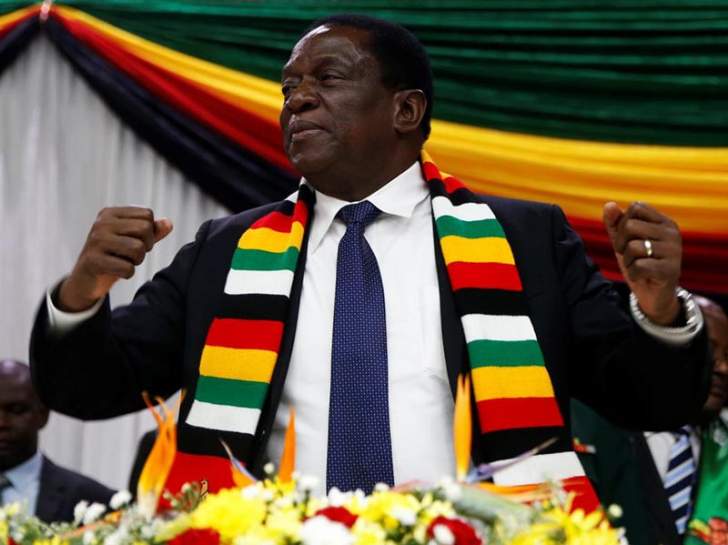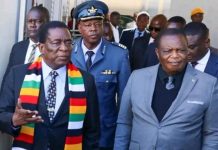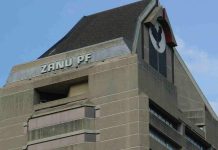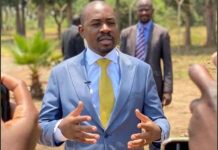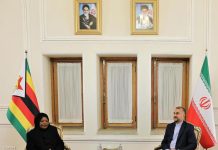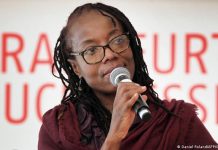President Emmerson Mnangagwa has invited MDC leader Nelson Chamisa and several opposition leaders who contested him in the July 30 plebiscite to a crucial indaba at his offices tomorrow in a bid to finally resolve the country’s deepening political and economic crises.
This comes as civic society organisations (CSOs) have said the mooted national dialogue should be inclusive and not just involve political parties.
Mnangagwa has already tasked the National Peace and Reconciliation Commission (NPRC) with spearheading the talks which are seen as the only solution to mitigating Zimbabwe’s worsening myriad crises.
The 76-year-old’s chief secretary, Misheck Sibanda, announced the meeting in invitations sent out to all presidential candidates who slugged it out against him in last year’s polls.
“The president of the Republic of Zimbabwe is inviting leaders of political parties who participated in the presidential election of 30 July to a meeting to discuss framework for dialogue and interaction.
“Each presidential candidate is expected to bring three delegates and those candidates with parliamentary representation, one extra delegate can be from Parliament.

“The meeting will be facilitated by the Office of the President and Cabinet, and will be held on 7 February 2019 at 1000hrs in the new Munhumutapa 2nd Floor boardroom,” Sibanda said.
The invitation of opposition leaders, particularly Chamisa who has been brawling with Mnangagwa ever since he won the hotly-disputed July 30 poll, represents a significant development which occurs at a time tensions are high in the country following recent riots.
Calls for national dialogue were ratcheted up in the aftermath of last month’s deadly riots sparked by a sharp fuel price hike.
Last month, police and soldiers were engaged in running battles with protesters who flooded the streets of Harare, Bulawayo and other towns — to demonstrate against the steep fuel price hikes which were announced by the president ahead of his tour of Eastern Europe.
Property worth millions of dollars was also destroyed and looted in the mayhem which ensued, after thousands of workers heeded the Zimbabwe Congress of Trade Unions (ZCTU) three-day stay-away call.
At the same time, security forces unleashed a brutal crackdown against the protesters, the opposition and civil society leaders — in a move which received wide condemnation in the country and around the world.
At least 12 people died, while 78 others were treated for serious gunshot wounds, according to rights groups and medical doctors.
Rights groups also continue to report human rights abuses by security forces — including galling allegations that soldiers had raped women and girls during their much-condemned crackdown against innocent civilians.
This prompted Mnangagwa to announce that he would probe the accusations, vowing that heads would roll if his government established that the abuses had indeed taken place.
The under-pressure 76-year-old Zanu PF leader made the announcement soon after he returned to the country, after cancelling his scheduled trip to Switzerland where he was due to attend this year’s meeting of the World Economic Forum (Wef).
“One week ago, I announced measures to stabilise our nation’s crucial fuel supply. I was aware that these measures may not be popular, and this was not a decision we took lightly. But it was the right thing to do.
“What followed was regrettable and tragic. Everyone has the right to protest, but this was not a peaceful protest.
“Wanton violence and cynical destruction; looting police stations, stealing guns and uniforms; incitement and threats of violence. This is not the Zimbabwean way,” Mnangagwa said on social media.
“Likewise, violence or misconduct by our security forces is unacceptable and a betrayal of the new Zimbabwe. Chaos and insubordination will not be tolerated. Misconduct will be investigated. If required, heads will roll.
I invite leaders of all political parties as well as religious and civil leaders to set aside our differences and come together.
“What unites us is stronger than what could ever divide us. Let’s begin a national dialogue. Let’s put the economy first. Let’s put the people first,” Mnangagwa added.
Meanwhile, and speaking to the Daily News yesterday through his spokesperson Nkululeko Sibanda, Chamisa said Mnangagwa should talk to him without any further delay.
“Chamisa is the one doing everything … comforting families, bringing our nation together. What is Mnangagwa doing?
“When you usurp or steal an election, you volunteer yourself for any form of dialogue in order to put the nation back on track … we need to put the nation first,” he said.
However, Mnangagwa insisted last week that talking to Chamisa did not make sense as the opposition leader continued to say that he was in power illegitimately.
CSOs yesterday welcomed the calls for dialogue but warned that it should not be centred on politics only but every other issue that was militating against progress in the country.
In a statement, Crisis in Zimbabwe Coalition (CiZC) said problems confronting the country were much bigger than politics and it was “imperative” to approach dialogue with sober minds.
“It is CiZC’s long held view that following the disputed July 30, 2018 elections, a national dialogue is critical in resolving the Zimbabwean crisis.
“It is our conviction that the national dialogue process must involve all stakeholders and a national visioning process that has civil society, government, political parties, business, religious groups and labour unions among other critical stakeholders.
“The dialogue process should produce a clearly timed roadmap to the demilitarisation of civilian political processes and the restoration of normalcy in the country by focusing on key political, economic and social reforms,” CiZC said.
“It is imperative to arrest the economic downturn in Zimbabwe based on a clear reform roadmap and implementation of pro-poor and inclusive economic policies.
“Efforts at economic transformation, stabilisation and growth should be aimed at achieving inclusive sustainable economic growth and development.
“The army must desist from partisan politics and confine themselves to the barracks. There is an imperative need to de-militarise the Zimbabwean state,” CiZC said further.
This comes as authorities have given the green light to the NPRC to spearhead talks aimed at resolving the country’s deepening political and economic crises.
The NPRC has already invited the opposition, Zanu PF, the church and other key stakeholders to submit their proposals which will guide the much-awaited national dialogue.

